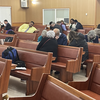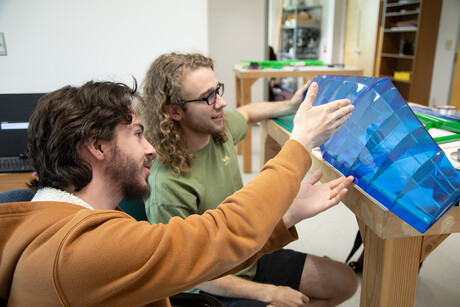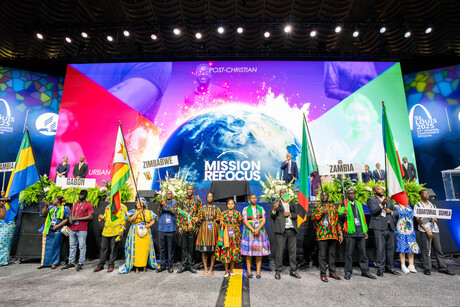Part II
There have been numerous longevity studies done in the United States and overseas that compare Adventists to the general population. While they may vary in their findings, it is safe to say that Adventists not only have a better quality of life but a considerably longer life expectancy than their neighbors.
Gary Fraser, M.D., Ph.D., professor of medicine and epidemiology at Loma Linda University and head of the Adventist Health Study–2, recently shared some interesting facts with me.1
•Vegetarian Adventists live respectively 9.5 years (men) and 6.1 years (women) on average longer than their non-Adventist counterparts.
•Vegetarian Adventist men and women are 13 pounds lighter (at the same height), on average, than non-vegetarian Adventists.
•Regular consumption of modest quantities of nuts decreases risk of heart attack by about one half.
•Meat consumption increases risks of colon, and probably bladder and ovarian cancers.
•Meat consumption increases risk of heart attack, particularly in younger and middle-aged persons.
•Regular physical activity decreases risks of both heart attack and breast cancer.
These are incredible statistics with significant implications.
According to the National Health and Nutrition Examination Survey:
•64.5 percent of U.S. adults are overweight. Sixty million are obese and nine million are severely obese.
•Obesity is now the second leading cause of preventable death in the U.S.
•Every extra pound shaved about one month from your life span, 60 extra pounds equals five years.2
The title of Bill Cosby's book, I Am What I Ate and I'm Frightened, may be more truth than humor.
Congratulations
Adventists are no longer an oddity but rather a respected and studied population group. To date, $40 million has been given to study our lifestyle. In 2001 funding was secured for Adventist Health Study–2, the largest and most technically advanced study of Adventists to date. I’m pleased to say that many Northwest Adventists have participated in the survey, giving the North Pacific Union Conference the highest rate of return in the North American Division.
It was in 1863 that Ellen White recorded her radical health reform vision. For many years Adventists courageously practiced health principles that were counter-cultural. Now 142 years later, science confirms much of what she taught. As news commentator Paul Harvey likes to say, “The little old lady was right again!”
The Good News and the Bad
That’s good news. God has given us information that is now becoming the envy and the model of contemporary society. Everywhere you turn, people are talking about diet and exercise. The bad news is that when I recently talked with some of the directors of AHS–2, they sadly stated that the comparative averages between AHS–2 and AHS–1 (conducted from 1958–1965) show a slippage in the practice of these health principles by Adventists at a time when many in the general population have begun to embrace them.
In this series of editorials, I have referenced Hewlett Packard’s motto, “Do we know what we already know?” On the same theme, Centers for Disease Control researchers noted, “Nowhere is the gap wider between what we know and what we do than in the area of physical activity, and nowhere is the potential payoff greater.”3
God says in Deuteronomy 28:13 that He wants His people to be the head and not the tail. As we contemplate the above data, I congratulate you for what you are doing and challenge all of us to act on what we already know.
If we were all doing that, imagine what those statistics would be. We would honor God by living up to the light He has blessed us with, and in turn we would truly be the head and not the tail.
Endnotes:
1This data and more are documented in the book, Diet, Life Expectancy and Chronic Disease Studies of Seventh-day Adventists and Other Vegetarians by Gary Fraser.
2Health Power: Health by Choice Not Chance by Aileen Ludington, M.D., and Hans Diehl, Dr.HSc., M.P.H., p. 65.
3Prime Time Living by David White with Christy Yingling, p. 63.
Box or sidebar:
Be a part of this confidential and historic health survey AHS–2. Pick up a form from your pastor, call (877) 700-7077, or enroll on the Web at www.llu.edu/llu/health/form.html.








